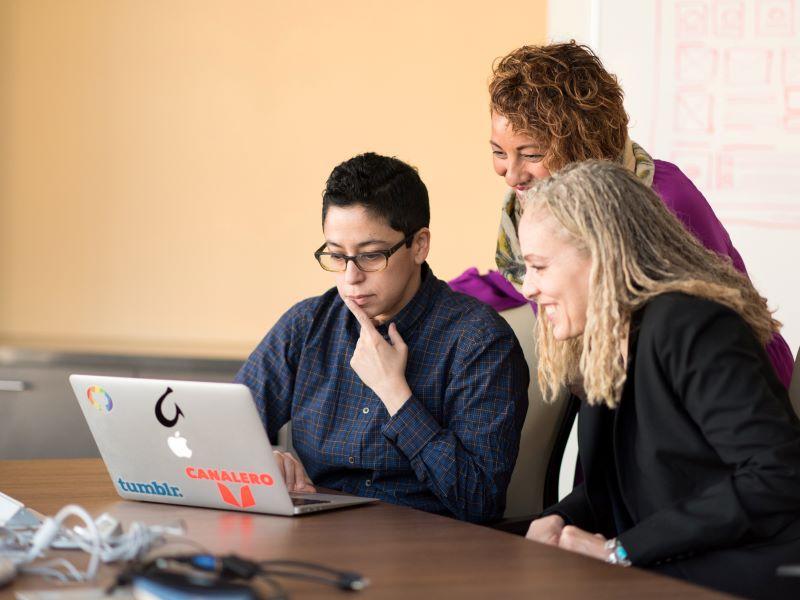
Foster mentorship skills to create the socially responsible leaders of the future

COP26 created a great deal of discussion around what our future companies, systems and practices may look like. Following the climate change summit, it’s time to turn words into action and start implementing practical methods to encourage the next generation in the right direction. Educational institutions and universities are where many of the leaders of tomorrow start their entrepreneurial journey, so the question is, what are the best skills and practices to set them up for the future and enable them to make a positive and meaningful impact on society?
- How to ensure your mentorship programme isn’t one of the (many) bad ones
- It’s a game changer: using design thinking to find solutions to the Sustainable Development Goals
- Co-creation and empowerment: pathways to better student engagement
One fundamental practice is mentorship – the art of communicating and collaborating to both pass on and receive knowledge and expertise, in order to learn, grow and develop. Although mentorship is far from a new concept in itself, the way in which this practice can be taught, encouraged and implemented can be creative and fresh, offering new perspectives and fostering resilience.
New methods of mentoring
Mentoring has evolved, and one new approach is a “life cycle” model, which challenges traditional methods by introducing “reverse mentoring”, where a senior leader is mentored by someone younger or more junior. Here at the London School of Economics, our entrepreneurship centre LSE Generate partnered with OakNorth to create the “Mentorpreneurship” programme. This university-run initiative is the first of its kind to engage past, current and future student entrepreneurs in a life cycle of mentoring, helping to develop their businesses and creative ideas. Through this model, the programme facilitates mentoring across the participating groups: school students are mentored by LSE students, early-stage entrepreneurs receive support from alumni entrepreneurs who have access to senior innovators, who are, in turn, “reverse mentored” by school students.
Mentorship in education
So how can institutions and academics adopt mentorship practices and make them work on a practical level? The good news is that mentorship is flexible, the principles can be embedded into courses, or provided as the focus of an elective or separate programme. The mentorship journey can also be continuous or divided into project-style bursts, depending on the needs of those taking part. The important element is how the mentorship is delivered and the following tips provide a guide to ensure that it can be implemented in the most impactful way possible:
- Be flexible and try new approaches: reverse mentoring or peer-to-peer collaboration can deliver surprising results. Think about how mentees can “mentor upwards” or support others at a similar level. What knowledge might they have to offer as part of the younger generation through their lived experiences and education? For instance, social media skills, cultural and generational insights and new perspectives on topical issues. A high-profile example is Greta Thunberg, who may not have as many years of experience under her belt but can still give world leaders a powerful new perspective.
- Encourage questions rather than statements: to ensure that mentors and mentees are matched correctly, encourage each party to think about what they can gain from the relationship by asking questions. The aim may be to widen networks and gain knowledge, or to build confidence and communication skills. It’s important to work out objectives and desired outcomes before any kind of mentorship relationship is set up, in order to make it a useful and impactful exercise.
- Practise transparency and honesty to build trust: it’s key to recognise that things don’t always go according to plan and mentor-mentee relationships need to be honest, open and reviewed on an ongoing basis. If something isn’t working, it’s vital to have clear communication to support troubleshooting as you go. Like any relationship, sometimes a mentorship partnership just doesn’t have the right chemistry. It’s best to recognise this and make the necessary changes, rather than pushing forward regardless.
- Focus on building core skills: mentoring can aid the development of essential life skills such as communication, teamwork, creativity and empathy. The new perspectives it offers help students and budding entrepreneurs think about the world and the challenges we experience in different ways. In the world of business, the ability to overcome adversity and accept a certain amount of failure as part of the learning process are essential assets, and mentorship facilitates this transfer of knowledge and insight.
However, there is still work to be done. A recent US study found that nearly half of students couldn’t identify a single mentor, and many institutions globally recognise this as an issue. To address this challenge, educators and universities have a duty to recognise the importance of mentorship, to the benefit of not only the students in question, but society in general. This type of support can lead to the development of more student entrepreneurs reaching their potential and the creation of more socially conscious start-ups – meaning real change for the future.
Laura-Jane Silverman is the head of LSE Generate at the London School of Economics.


